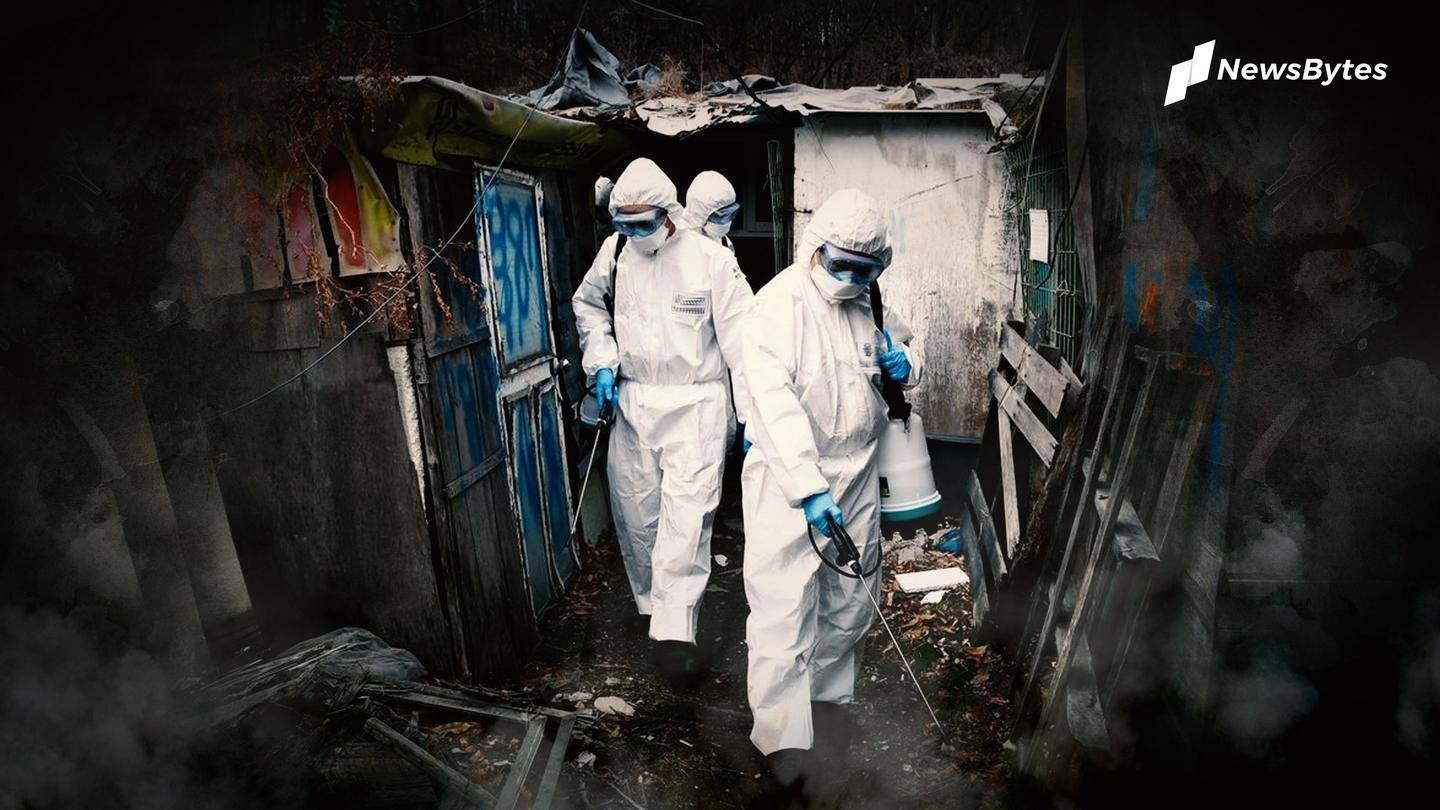
Remdesivir found ineffective; India to reassess coronavirus treatment protocol
What's the story
The second worst-hit nation in coronavirus pandemic, India, that takes pride in the remarkable recovery rate, will reassess coronavirus treatment protocol after a large-scale trial conducted by World Health Organization (WHO) found that four commonly used re-purposed drugs had little impact in reducing mortality. Remdesivir was one of the four drugs and so was Hydroxychloroquine, a malaria drug. Here's more on this.
Study
Solidarity trial's setback in fight against deadly virus
In March, WHO and its partners started a large-scale trial — spanning over 400 hospitals in more than 30 countries and involving over 11,300 participants — to find an effective drug against the virus, that has so far killed 1,109,130 globally. Four drugs, namely Remdesivir, Hydroxychloroquine, Lopinavir/Ritonavir, and Interferon (along with Rotinavir and Lopinavir) were administered. Remdesivir, which was seen as promising, also failed.
Details
None of the four drugs reduced mortality, initiation of ventilation
2,743 patients were given Remdesivir. Of them, 301 died. Moreover, of the 2,708 under control group, 303 died within a span of 28 days. "It (the trail) found that all 4 treatments evaluated (Remdesivir, Hydroxychloroquine, Lopinavir/ritonavir, and Interferon) had little or no effect on overall mortality, initiation of ventilation, and duration of hospital stay in hospitalized patients," WHO's statement, published on the website, read.
Quote
So far, only corticosteroids proved effective: WHO
"The solidarity trial is considering evaluating other treatments, to continue the search for effective COVID-19 therapeutics. So far, only corticosteroids have been proven effective against severe and critical COVID-19," WHO's statement added. India also participated in the solidarity trial.
Reaction
However, Gilead Sciences has dismissed the WHO's trial
Notably, WHO's findings miffed Gilead Sciences, an American biopharmaceutical firm, that developed and patented the promising drug. "We are concerned that the data from this open-label global trial have not undergone the rigorous review required to allow for constructive scientific discussion, particularly given the limitations of the trial design," the firm said. Chairperson of Biocon, Kiran Mazumdar Shaw, also described WHO's process as flawed.
Statement
ICMR confirmed India might be changing treatment protocol
Meanwhile, buoyed by the study's findings, India has decided to approach coronavirus treatment differently. Dr. Balram Bhargava, Director-General of Indian Council of Medical Research (ICMR), told HT, "We will be revisiting the clinical management protocol in the light of new evidence before us." Hydroxychloroquine's off-label use for moderately-ill coronavirus patients was approved by India's drug regulator, while Remdesivir was approved for "emergency use authorization."
Details
Expert felt the study was not expansive enough
Evidently, experts raised pertinent questions after WHO's findings. Referring to the trial involving over 1,000 patients in US, Dr. Srinath Reddy, President of the Public Health Foundation of India, told IE, "The numbers were relatively small for a clinical trial — and it turned out that the Remdesivir group had better prognostic indicators than the control arm." But he didn't dismiss the study, altogether.
Statement
Crucial to know which drugs don't work: Dr. Reddy
Dr. Reddy said the main objective was to conclude the effectiveness of drugs. In this context, they found an answer. "There are certain soft end points like if there are any particular subsets that benefit more; like Americans are saying that it cut shorts the recovery time etc., which we will get to know as the trial is ongoing," he told HT.
Quote
Remdesivir found to be not effective: WHO's Soumya Swaminathan
Commenting on the findings, Dr. Soumya Swaminathan, WHO Chief Scientist, said, "Personal experiences are valuable. However, that does not help to compare in the clinical setting. The solidarity trial has commented on the value of Remdesivir in hospitalized patients."